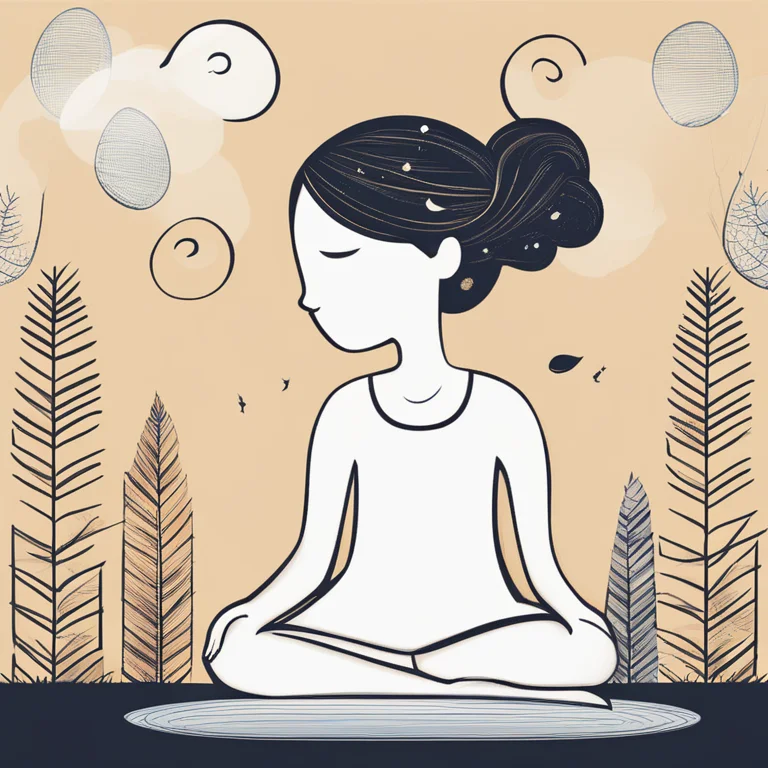
Mastering Meditation Breathwork
Discover the transformative power of meditation breathwork to enhance mindfulness, reduce stress, and unlock deeper self-awareness.
article by Hina Kurosawa
The Essence of Breath in Meditation
Breath is more than a mere physiological necessity; it is the bridge between body and mind, the rhythmic dance of life sustaining us from moment to moment. In the context of meditation, breathwork is an anchor, guiding practitioners into a state of deeper mindfulness and presence. The art of controlling the breath is a key element in various meditation practices and serves as a foundational technique for cultivating a serene and balanced state of being. Embracing the breath allows individuals to navigate the ebbs and flows of their inner world, making space for clarity and tranquility amidst the chaos of modern living.

The Benefits of Meditation Breathing
Breathwork within meditation is a conduit for numerous benefits, both mental and physical. Research continues to show that rhythmically regulating one's breathing can lower stress levels, reduce anxiety, improve concentration, and elevate one's overall mood. Beyond these psychological advantages, controlled breathing can also decrease blood pressure, regulate heart rate, and enhance autonomic nervous system function. These techniques have gained significance in recent years, with mindfulness and holistic health paradigms propelling them to the forefront of modern self-care practices.

Diaphragmatic Breathing: A Core Technique
A fundamental technique in meditation breathing is diaphragmatic breathing, also known as abdominal or belly breathing. This method involves deep, even inhales that expand the abdomen, rather than shallow breaths that only raise the chest. It's an efficient way to lower the heart rate and stimulate the parasympathetic nervous system, which promotes a state of calmness. By focusing on a slow and deliberate breathing pattern, one encourages the mind to settle and discourages the proliferation of scattered thoughts—a common obstacle in meditation.

Alternate Nostril Breathing: Achieving Balance
Another profound breathing method is Nadi Shodhana, or alternate nostril breathing. Rooted in ancient yogic traditions, this technique is recognized for its ability to balance the hemispheres of the brain and harmonize the energy channels within the body. The process is simple: gently closing off one nostril, inhaling through the other, then switching nostrils to exhale and inhale again, before changing back. This measured alternation not only fosters equilibrium in the nervous system but also aids in clearing the mind, making it especially effective before or during meditation sessions.

4-7-8 Breathing: A Relaxation Response Trigger
Developed by Dr. Andrew Weil, the 4-7-8 breathing technique is a powerful tool to elicit the body's relaxation response. The practitioner inhales for a count of four, holds the breath for a count of seven, and then exhales slowly for a count of eight. This pattern is believed to reduce anxiety and help individuals fall asleep more quickly, making it an excellent preparatory practice for meditation or a standalone relaxation strategy. Its simplicity and effectiveness have solidified its place as a cornerstone breathing exercise in wellness circles.
Integrating Breathwork into Daily Life
Adopting these techniques need not be reserved for quiet, secluded meditation sessions alone. Breathwork can be seamlessly integrated into daily routines, whether as a calming start to the morning, a revitalizing pause during a busy workday, or as a wind-down ritual before bed. Regular practice turns these techniques into invaluable skills for managing stress and enhancing one's meditative practice. By consistently incorporating breathwork into their lifestyle, individuals can unlock the full potential of their breath as a tool for mindfulness and self-regulation.
Published: 1/9/2024
Modified: 1/9/2024
More predictions
Come back here soon to learn more about yourself and your future


Serenity Through Meditation Retreats
Embark on a transformative journey at a meditation retreat to recharge, refocus, and reconnect with your inner self.


Mindful Rest: Integrating Meditation & Sleep for Well-being
Discover the synergy of meditation and sleep in enhancing mental, emotional, and physical health. This article delves into practices that combine these powerful restoration tools.


The Harmony of Meditation and Sleep
Discover the synergistic benefits of meditation for enhancing sleep quality and overall well-being in this insightful article.